In 1996, Los del Río’s 'Macarena' and Mariah Carey and Boyz II Men’s 'One Sweet Day' were beaming from radios worldwide. The world was captivated by Chandler Bing and Joey Tribbiani’s banters, all while adjusting to the post-Cold War geopolitical landscape. The shiny new thing called the World Wide Web was gaining popularity, drawing more people to access the internet.
Meanwhile, on a football field in Stockholm, a tall, young Swede dreamed of scoring goals, spending five years of his young adulthood as a professional football player. Little did he know that this dream would soon become a thing of yesteryears, as he later discovered a newfound passion for the culinary arts after savouring steak frites during a fateful meal at his friend's parents' French brasserie.
In 2018, Frantzén, his first restaurant, became the first Sweden-based establishment to be lauded with three MICHELIN Stars, followed by Zén in Singapore, with three MICHELIN Stars in 2021. Now 47 years old, Björn Frantzén stands at the helm of MICHELIN-Starred restaurants, effortlessly blending the team spirit of football with the finesse of haute cuisine. He joins the select few frontline chefs who proudly fly the flag for contemporary Nordic cuisine high.
On a warm Saturday afternoon, we sat down with Björn Frantzén at Villa Frantzén, his MICHELIN-listed establishment, in Bangkok as he shared memorable first bites, discussed why sustainability cannot work without government support, life-changing lessons, as well as the future and his contributions to this world.

“I'd rather get down on the ground and make a change instead of just sitting in my corner and complaining about how things aren't the way they are.”
What was your first memory of food?
“I didn't like food. I just wasn't interested in food. I was very picky and a nightmare to cook for because I hardly ate anything. All I wanted to do was eat sandwiches in the evening. My mother called me a bread maniac.“When I was 13, we went to a small French brasserie in Stockholm that my best friend’s parents owned. My friend and I had this lovely sort of steak frites; it was the flavour of the grilled meat on a charcoal grill with French fries, homemade béarnaise sauce, and a tomato red onion salad. For me, it was a hallelujah moment. It was the best thing I ever had in my mouth. That was when I said, ‘Okay, I'm going to go to catering college. So I could learn how to cook these, so I can eat them every day. And in case my football career fails, then I could become a professional chef’. So, my dream somehow came true – just not the football one.”
Do you find any resemblance between football and cooking?
“Well, I find running a MICHELIN Star restaurant very similar to that feeling in a dressing room ten minutes before kick-off. It's you against someone else, and it's a group of people that needs to perform on a high level with high expectations of them. The same with football. You don't put Cristiano Ronaldo as a goalkeeper and it's the same here. You don't put [our head chef] Nilas [Corneliussen] in whatever. There's a lot of similarities on how you build a team.”What is the biggest misperception about yourself?
“My CEO has a good saying. He says, ‘If there's a problem with someone and you sit down with them,’ normally 99% of the time, they go into defense mode. They're like, 'No, I'm not grumpy.' No, but everyone around you sees you as grumpy. So what are you going to do about it? So you've got to change, man, because everyone around you won't change.’ Then I’m like, ‘Oh, really? Do they think that [I’m grumpy]? But I was just concentrating.’ Most people have worked with me for so many years. For them, I'm like a book. They can see if I'm upset or if I'm not happy with something. So I think we don't have so many misunderstandings or misperceptions anymore.”
What's your view on sustainability?
“One thing that people forget when they talk about sustainability is that there's a lot of talk about organic. But what I think is really missing in this discussion is that sustainability also involves having a fully booked restaurant with zero waste. People don't talk about that. They talk about where the cucumbers are coming from, how many cucumbers you are using, and whether you are throwing something away. That's one thing that is missing in this discussion. Obviously, it's something that you, as a restaurateur, have to keep in mind.“We are always keeping an eye on things like red-listed fishes and the origin of our ingredients. We don't talk about it explicitly as it's just part of everything, similar to how we discuss flavour. However, there's a challenge associated with it because, although people talk about it, very few are willing to pay for it or can afford to do so.
“When I opened a brasserie in Sweden three years ago, my ambition was to do everything organic, dairy free, such as and then we do the food calculations on it. And then suddenly, your steak frites, for example, instead of $49, it's $72. And then I'm not compatible with my competition because there are not enough guests out there that are ready to spend. It's the same as if you're running a conference centre for 20 people, and some attendees say, ‘Oh, I don't eat sugar, and I try to be healthy, and so on.’ You place two bowls in the conference room, one filled with candy and the other with nuts. Guess which one is empty after the conference? It's the candy, not the nuts.”
“In Sweden, we're producing too much. So the whole milk production, a lot of them changed to producing biodynamic milk, but it just costs extra. So when people go shopping, they can't afford it. Yes, people are talking about it, but very few are living up to it. It’s a money issue. If you really want a big change in this, you need help from the government. If biodynamic milk and normal milk cost the same, everyone, or 99% would go for biodynamic. Until any government does that, it's not going to change. Greed is one of our biggest advantages and disadvantages. Humans need greed because it also drives business. So, it's a double-edged thing.”
How do you define success?
“[When there is] hard work, sacrifices, and joy. You can't get away from it; it's bloody hard work. But I never think about it as a success because you live in your small bubble. Every day, there is a new problem, so you get stuck on problems. You may have some small moments where you get to enjoy something, where you feel proud – like the dinner I had yesterday here [at Villa Frantzén]. But then you start seeing things that need to be discussed which I wrote them down…”What’s so special about Villa Frantzén?
“Obviously, it's a bloody estate in the middle of the cosmopolitan city of Bangkok. By far, it's the most Nordic restaurant we've ever done – interior-wise, food-wise, porcelain-wise. When we met Rajesh [Kewalramani], he said, ‘So I think maybe we should do a restaurant here,’ I replied, ‘You’re going to turn this into a restaurant? You're crazy, man.’ I thought it wasn't going to be possible. You should have seen how it looked before! Someone used to live here 15-20 years ago or something. It’s really cool.”As a chef, what do you think you contribute to the world?
“It's hard to say [what I’ve contributed] to the world, but obviously, what we're doing as we go global is bringing a little bit of Nordic Scandinavia to the world. Additionally, I would say that we are among the first to lead change in the way [we work]. For instance, in Bangkok, they work five days a week. In Singapore, we were the first to implement a four-day workweek. In Sweden, we are the first restaurant to close on Saturdays and Sundays. However, I also believe that the entire restaurant industry needs to change. It's not like it was 20 years ago when everyone was expected to work six days a week, 18 hours a day, and take hardship from the manager.“The entire restaurant industry needs to change. It's not like it was 20 years ago when everyone was expected to work six days a week.”

“I hope I have brought more humanity and a better work-life balance to people. That's why we close on Saturdays and Sundays at Frantzén in Stockholm because some of the guys have been with me for ten years. Suddenly, someone you hired at 28 is now 40 with two kids, and weekends become important for them to have time off. I'm not saying I'm a freedom fighter here, but I'd rather get down on the ground and make a change instead of just sitting in my corner and complaining about how things aren't the way they are. Complaining without trying to make a change feels like a cheap shot to me.”
Do you have a life-changing lesson learnt in the kitchen?
“In 2009, when my first restaurant had been open for a year, we got one [MICHELIN] Star, and it was a Sunday. I called one of our investors at the time, upset because Saturday's service was bad, and the kitchen wasn't performing. I was complaining to him. So, he started to laugh big time and said, ‘Oh, bloody chef. You haven't got it, have you? Don't you understand? It's all your fault.’ And I said, ‘What the heck do you mean, man?’ He went, ‘No, either you hire the wrong people or you train them wrong. It's all your fault. Just decide what it is. If you hire the wrong person, Get someone else, or you just train them wrong. It's not their fault.’ And I was like, ‘Yeah, he's right.’“I was lucky to get that sort of advice so early on running my own operation because it applies until today. When I talk to someone who is a manager and they say, ‘Oh, it's a problem with that.’ I said, ‘Okay man, you could choose. Have you sat down with a person and asked them, ‘Hey, what's going on? You're not performing? Why? Do you know where you're going? Do you know exactly what you're going to do? Or do we need to go through the training schedule again?’ Or otherwise, we should not work together. I don't want to come to my job and be upset. So that was clever advice.”

What advice would like to give to your younger self?
“Don't worry too much. If you are serious and professional, everything will work out in the end. Just have fun. Enjoy. When you're worried and have sleepless nights, you [try to] come up with solutions and everything. But if you look back, things always work out in the end if you are serious and professional. When I was 20, I honestly didn't know the difference between parsley and tarragon. But I was serious. I put my head down and I worked my ass off. You get far. Until today my mother still can't believe I'm actually a chef.”What are the main characteristics you look for in a good chef?
“Once again, it's about being serious and professional in whatever you do. If you want to become a chef, don't go out drinking and come in hungover the next day. I'm not saying you're going to live like a monk, but choose wisely and be disciplined. I don't care how good you are at cooking; we can help you, but you need to turn up on time. You need to be serious and professional. Then, the team will respect you. But if you start misbehaving with some of these things, then it will be a problem. You see especially with people that have a lot of talent. They get away with a lot but sooner or later, reality will catch up with you.“I can see that in my oldest daughter; she was struggling to become a lawyer but wasn't very good at maths and other subjects. However, her grades were not good enough to get into college., so she studied the hell out of it. She improved her grades and gained admission. She was serious. She was professional. She didn’t sneak out drinking wine. She actually studied. If you're serious and professional, there's no stopping how far you can go.”
“Sir Alex Ferguson, who used to be the manager of Manchester United, looked for young guys that don’t come from a rich area. He wanted someone from a poorer area because they will not screw up. They will be disciplined. They will take this opportunity and be serious. So it's more than just talent. Hunger, I guess.
“The one we have the most problem with is what we call the Zlatan type. We have a famous footballer, Zlatan Ibrahimovic. He stopped playing now, but he played for all the best teams. And these guys are so good. They also have such big egos. They're hard to handle but you need some of them. You can't have too many slowdowns, or the team will not win.”
“I don't care how good you are at cooking; we can help you, but you need to turn up on time. You need to be serious and professional.”

Having restaurants all over the world gets you to travel so much, what is it that you have always wanted to do and haven’t done?
“There is a lot of stuff I want to do, but they're more personal bucket list items. Sadly, the only place I've visited in Thailand is Bangkok. I've never been to the beautiful places in Southern Thailand, so I plan to come back with my family. We'll spend some time in Bangkok and then maybe head down to Ko Samui.“Oh, I also got to try the best beef in the world in Seoul. I tried to get a hold of it, but they said, ‘We don't export. We don't have enough.’ Other than that, I'd love to attend a Formula One race in Singapore. Also, go with my golfing buddies to some of the finest golf courses.
“My family and I have yet to experience the white beaches of the Maldives. I also want to go to Napa Valley, drive with family to see the vineyards, and have lunch at the The French Laundry. It's such an iconic, classic restaurant but I have never done that.”
What’s next for you?
“Our next project will be in Dubai in March or April, which will be two restaurants. One fine dining and one casual dining. We’re taking over the old Nobu space at Atlantis at The Palm where we're turning into Studio Frantzén, which is the concept we have in London. We’ll probably do the fine dining first. That's going to be a hell of a restaurant. Dubai has really developed in the last eight years. We have had requests before but the market wasn't ready. Now that the MICHELIN [Guide] came two years ago, and especially after the pandemic, Dubai really strengthened its position. So I think Dubai is ready now.“Hopefully, in the future, one of my daughters will take over the company. And what happens then, you know? Currently, they have shown absolutely no interest in cooking. We only see the older one, who likes to bake sweets. The younger one has type one diabetes. Dear God, so she should not be making sweets... But she's more of a professional footballer right now; she's playing a lot of football.”
Illustration image: © Villa Frantzén



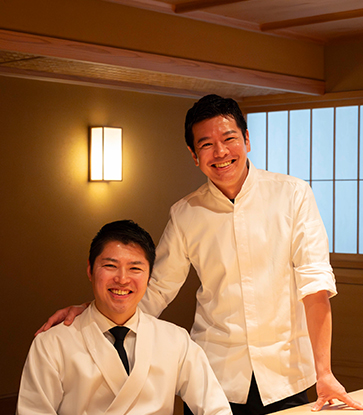



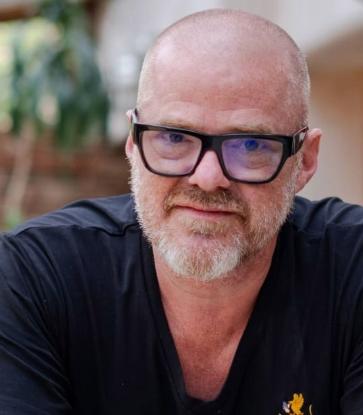
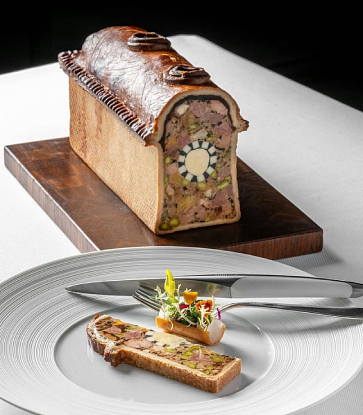
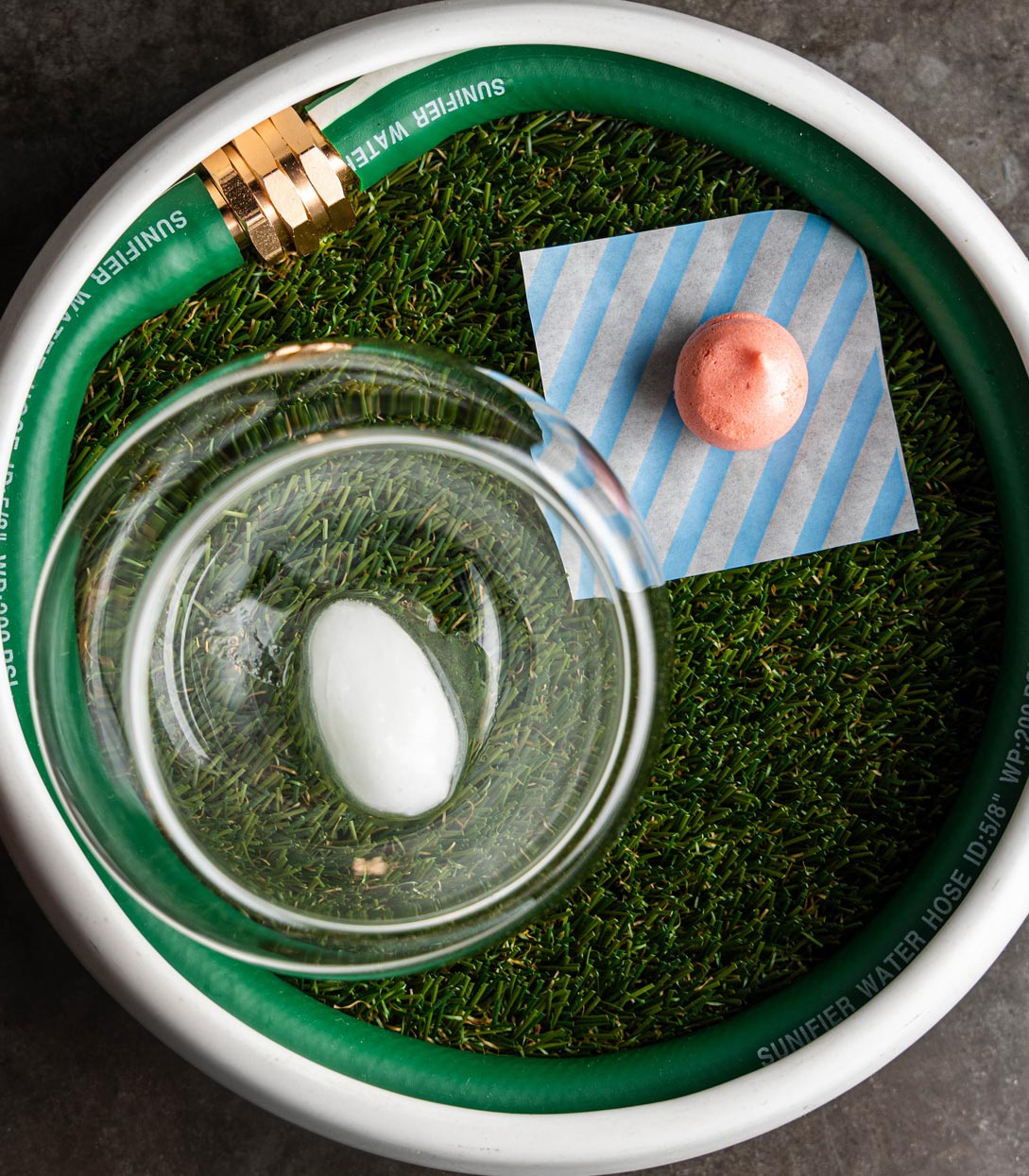

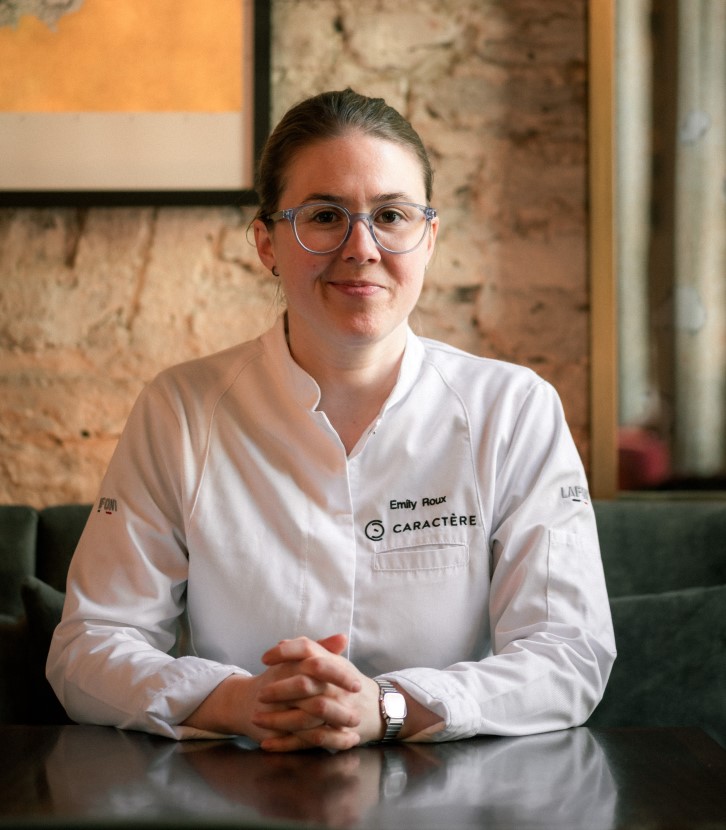

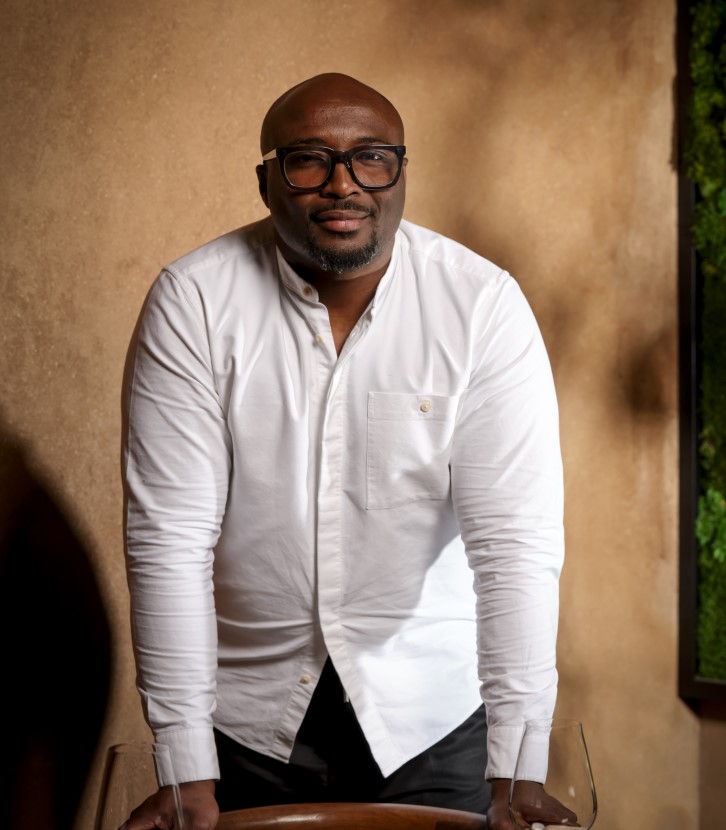

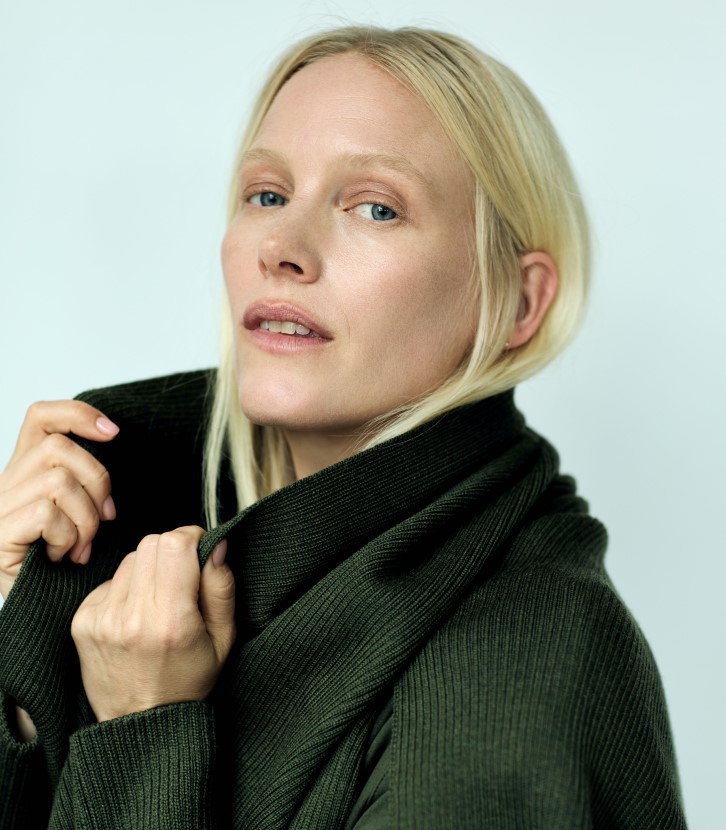
%20-%20Aman%20Nai%20Lert.jpg)


